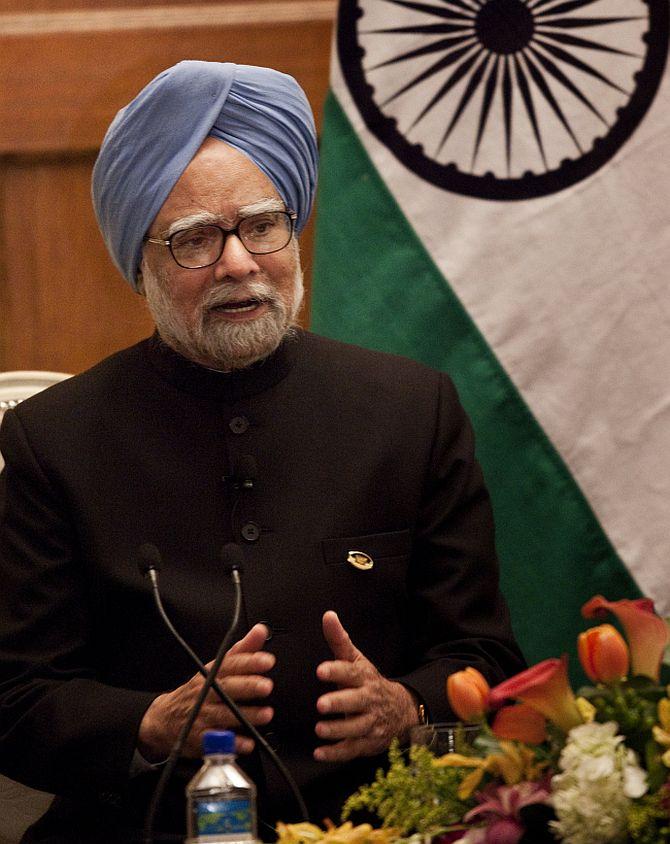
Manmohan Singh is often chastised in political circles as being a silent Prime Minister. In the course of his near-decade tenure as the prime minister, the billion-odd people of the country too have come to accept that for a fact.
Dr Singh has time and again tried in vain to correct his image, often choosing the smartest of words to deal with his critics.
On August 30, during the discussion in Rajya Sabha on economic slowdown in the country, Dr Singh hit out at the opposition for stalling Parliament and refusing to recognise the collective responsibility of the House.
Hurt over being targeted by BJP, Dr Singh asked the Chair, "Have you heard of any country where the Prime Minister is not allowed to introduce his council of ministers..."
"Nowhere in the world members of Opposition walk into the well of House, and shout 'PM chor hai' (PM is a thief)…"
There have been other occasions when the Prime Minister has lost his usual cool, composed self.
Obviously, there could be more days when Dr Singh spoke from his heart, but here's our pick.
...
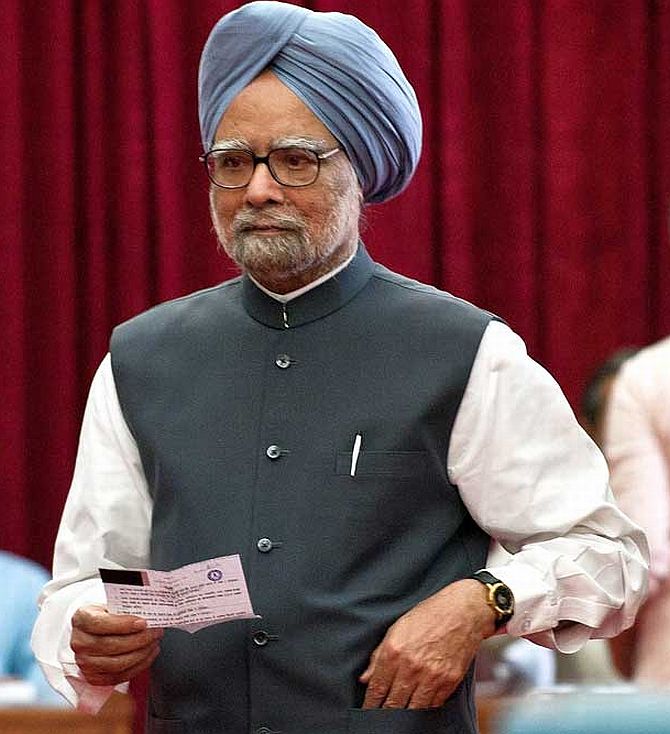
In March 2013, Dr Singh lashed out at the BJP in the Lok Sabha for trying to belittle UPA government's achievements saying the party will fail at the hustings next year like it did in 2004 and 2009.
In an apparent reference to Narendra Modi's attack on Congress as "termites" and him as a "night watchman", Dr Singh said: "You used choicest abuses against us. It is not my intention to reply in that language because our performance is the best judge."
Employing Urdu and Hindi couplets and proverb deftly, the usually-soft spoken Singh took pot shots at L K Advani, saying the BJP lost the 2004 polls after its "India Shining" campaign and faced defeat against in 2009 when they pitted "iron man" against the "lamb that Manmohan Singh is".
"I am confident that the people will again elect us in the next elections based on our performance," the Prime Minister said.
"Jo garajte hain, woh baraste nahi (Thunderous clouds do not bring showers)," he said taking a dig at BJP's use of strong words of criticism.
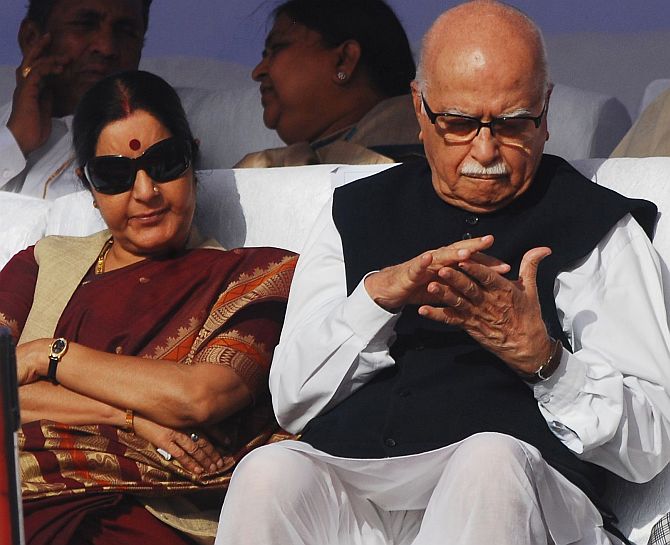
In March 2011, rejecting as "wild" the charges that bribe was paid during the 2008 confidence motion, Dr Singh took on the opposition in an uncharacteristic combative manner.
Dr Singh particularly targeted L K Advani, saying the BJP leader thought becoming prime minister was his "birth right" and hence had never "forgiven me".
Singh also had a couplet-for-couplet reply to Swaraj who had questioned why the prime minister was saying he was unaware about developments in his government.
"Mana ki tere deed ke kaabil nahi hoon main, tu mera shauk dekh, mera intezar dekh (I admit that I am not worth your attention but appreciate my interest and my patience)," the prime minister said in Urdu.
He was responding to Swaraj's Urdu couplet -- "Na idhar udhar ki tu baat kar, ye bata ki kaafila kyun luta. Hamein rahjano se gila nahi, teri rahbari ka sawal hai (don't talk about this and that, tell us why the caravan was looted. We have no complaint with the passersby, it is a question of your leadership)".
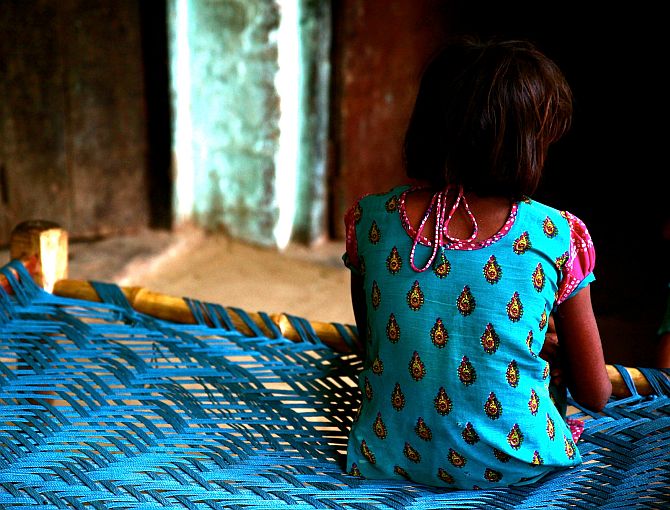
As protests against the gruesome rape on a five-year-old girl in New Delhi in April 2013 intensified, an anguished Dr Singh was forced to break his silence and call for "vast improvements" to ensure women's safety in the country.
"The gruesome assault on a little child a few days back reminds us of the need to work collectively to root out this sort of depravity from our society," he said.
It is widely accepted that, as a country, we have vast improvements to make in these (safety, security and status of women) areas. These issues came into sharper focus after the horrific gang rape incident in Delhi last December," the prime minister added.
"All of us, as responsible citizens, have a special obligation to contribute to the social and economic empowerment of women in our country," he added.
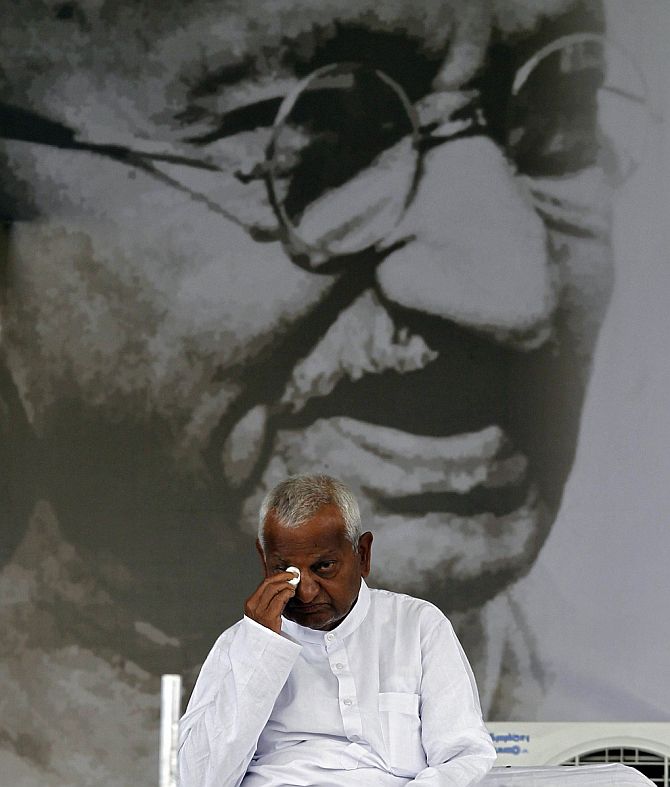
Back in August 2011 when Anna Hazare’s anti-corruption war was at its peak, Dr Singh lashed out at the social activist, accusing him of trying to circumvent democracy by demanding Parliament pass a reform bill he supports.
In the midst of raging public support for Hazare and scorn for his administration, Dr Singh told Parliament that while Hazare had the right to express his views on the draft bill, he was improperly usurping the role of India's elected representatives by trying to force them to pass his own version of the anti-corruption legislation.
"The path that he has chosen to impose his draft of a bill upon Parliament is totally misconceived and fraught with grave consequences for our parliamentary democracy," Dr Singh said.
"Those who believe that their voice and their voice alone represents the will of 1.2 billion people should reflect deeply on that position. They must allow the elected representatives of the people in Parliament to do the job that they were elected for."
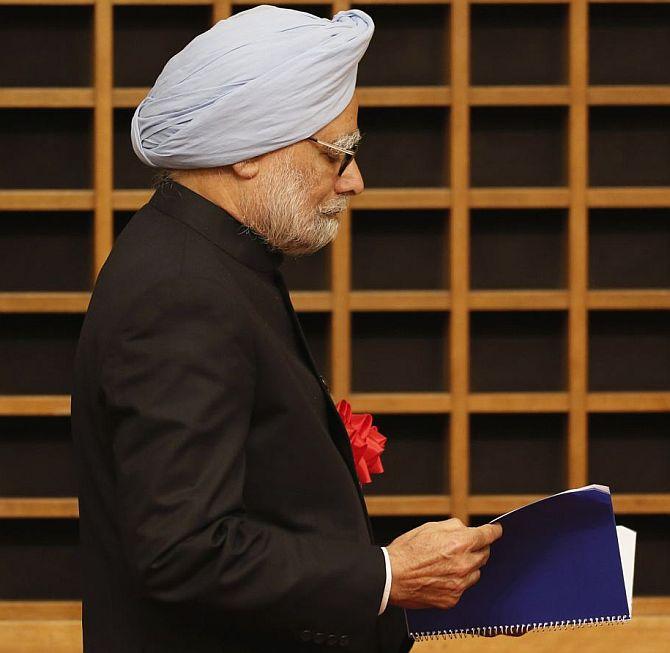
A month after terror struck Mumbai in November 2008, Dr Singh struck an emotional chord with those gathered to hear him at Shantiniketan in West Bengal.
“Today, we are witnessing an unacceptable rise in intolerance. Our society seems more divided, more angry, and, tragically, more violent,” said Singh while addressing the annual convocation of the Visva Bharati University in West Bengal’s Shantiniketan, founded by Nobel Laureate Rabindranath Tagore.
“We belong as a nation, to an ancient and tolerant civilisation. We must ourselves be tolerant of those who might think differently, who worship other gods, or speak in a different tongue,” he said.
“It is the fundamental right of all to follow their religion, practise their culture and hold to their views. But it is nobody’s right to deny anyone this right, or to dictate faith and opinions to others. The essence of democratic polity is that we can disagree, but still work together.”

And finally, here’s something other than politics that made Dr Singh lose his cool.
On a weekend trip to Bangalore in June 2006, the prime minister seems to have taken an instant dislike for the mayhem on the city’s roads.
While laying down the foundation stone a 10-lane road project at ElectronicsCity, he said: "Mere windswept roads and fancy cars alone do not reflect progress. Good road manners and discipline are equally important."
He had something to say about road rage as well.
"We must ask ourselves: Why can't we be more polite to each other, more caring of each other, more respectful of each other? One should give way to pedestrians, observe rules while overtaking, know how to park and when not to blow a horn."
"These are simple rules, but their observance makes a lot of difference to our daily lives. We Indians behave with great courtesy at home and with family and friends. But when we go out we leave these manners behind. On the road, we lose control of our good senses. Why should this be so?"
Click on NEXT to see related feature...